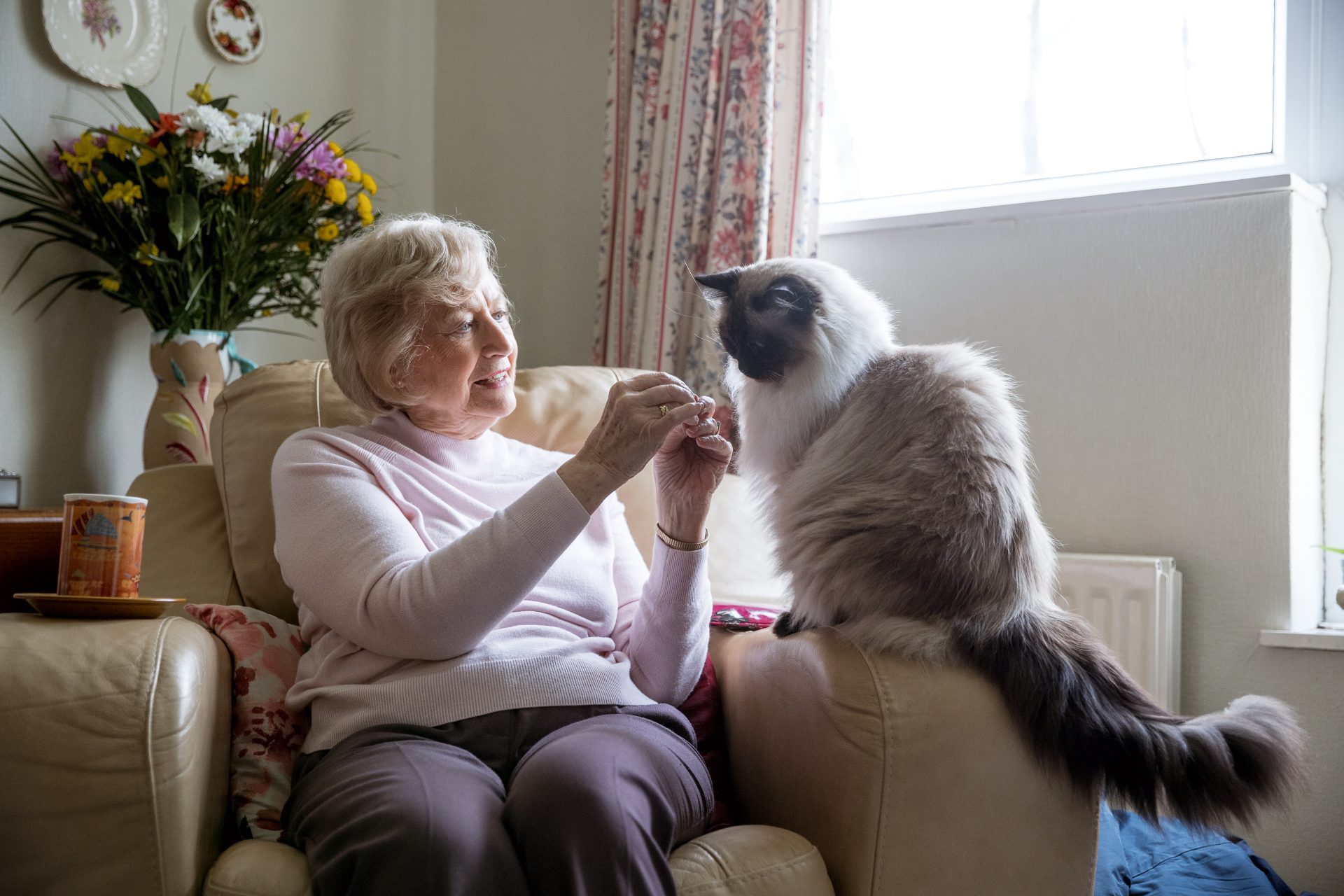Older Australians to be surveyed about using sensor technology to stay at home longer
A project led by the UTS Institute for Sustainable Futures in collaboration with the NSW Smart Sensing Network and the University of Newcastle’s FASTLab research hub seeks to understand older Australians’ attitudes to using sensors and robots in their home.
Using sensors and robots in the home could be the key to keeping Australia’s rapidly ageing population at home longer.
This technology could also pose a solution to a recommendation of the 2021 Royal Commission into Aged Care Quality and Safety, which identified a lack of adequate resources to meet the growing demand for aged care facilities and hospitals.
For the first time, NSW universities, healthcare providers and local health districts will survey older Australians, carers, families and healthcare professionals about their attitudes to the use of technology that can support their increasing preference to age at home.
The UTS Institute for Sustainable Futures is leading the project in collaboration with the NSW Smart Sensing Network (NSSN) and the University of Newcastle’s FASTLab.
“Using sensor-driven technology in the home can help support Australia’s rapidly ageing population and alleviate the burden on hospitals and aged care resources,” Professor Jason Prior from the UTS Institute for Sustainable Futures says.
“However, we don’t know what the everyday ageing person thinks about using this technology.
“That’s why we are conducting this market research: to give us the insight we need.”
The project comes as the Australian population over 65 is rapidly increasing and demand for aged care services is expected to grow.
More than 1.3 million people were using aged care services in Australia in 2019-2020, and there is an increasing preference for people to stay in their homes.
NSSN MedTech Theme Leader Catherine Oates Smith says governments quickly need a plan to support the country’s rapidly ageing population and sensors can help.
“Sensors can collect data on lifestyle and biometric data, such as activity data and blood pressure readings, and then trigger preventative and urgent alerts.
“The information picked up by the sensors can be sent to family, carers and telehealth operators so that action can be taken to support the ageing person in their home, instead of them having to go to the hospital or an aged care facility.
“In the aged care sector, a vital sign alerting system could significantly reduce the number of falls for ageing people, especially at night, and reduce the burden on carers to do check-ups in person.”
The project is part of the University of Newcastle-led Healthy@Home (H@H) initiative, which is testing the idea that technology can help older people retain a positive sense of identity and independence in their own homes and significantly increase their quality of life, without putting strain on an already-stretched home-care workforce.
“H@H aims to offer next-generation sensor technology in aged care, at minimal cost to health organisations and local health districts, which will enhance ageing people’s quality of life as they are safely supported in their homes,” FASTLab Founder and Director Professor Paul Egglestone says.
“We want to use the data collected from the project surveys to help inform industry and government about how to roll out these devices so that our ageing population can stay at home longer and reduce demand on acute health care services.”
Independent Health Consumer Leader and Digital Health Expert Advisor Harry Iles-Mann says the surveys are an important step in building trust in sensor technology through collaborative research so that older Australians’ can stay at home longer.
“We know that older Australians are embracing the role that digital solutions and technology can play improving health and wellbeing,” Mr Iles-Mann says.
“In trying to innovate, building trust through partnerships and meaningful engagement with the community is not only an essential step in informing impactful design according to health consumer values – it is fulfilling the right of all Australians to contribute to, and actively shape the ways decisions are made about and support their care.”
Reasons why people may reject technology could include problems with the design of the technology, ease of use, concerns over the collection of personal information and potential of data breaches and hacks, the researchers say.
The project involves a consortium of 10 Australian innovation companies, five NSW universities and three NSW Local Health Districts.
It has received $168,000 of funding through the SPHERE Seed Funding Grant Scheme and in-kind industry support of $221,990.
“This seed funding grant was the top ranked by our independent panel of expert reviewers including consumer engagement representatives,” says Maridulu Budyari Gumal (SPHERE) Acting Executive Director, Professor Chris White.
“Apart from its scientific merit, it met the principles of Maridulu Budyari Gumal, SPHERE’s “Research without Borders” policy.
“This grant had the greatest number of collaborators, within and beyond SPHERE partners, and will lead to rapid scale-up in health systems research in an area of unmet need deemed important by our valued partner, the consumer; in this case aged elderly and their carers confronted with a bewildering array of technology-enabled devices with which they are often not familiar.”
It’s hoped the project outcomes will help guide existing initiatives across academia, industry, and NSW and federal governments, and lead to a real-world trial of technology in ageing people’s homes.
Other project partners include: Tyree Foundation Institute of Health Engineering, UNSW, Central Coast Research Institute, Central Coast Local Health District, InteliCare Holdings Limited, South Eastern Sydney Local Health District, South Western Sydney Local Health District, Tunstall Healthcare, HammondCare, United For Care, NSW Meals on Wheels, Greater Cities Commission, Medical Technology Association of Australia, Aged Care Industry Information Technology Council, Hills Corporate, Vlepis Pty Ltd, D&M Research Pty Ltd.
